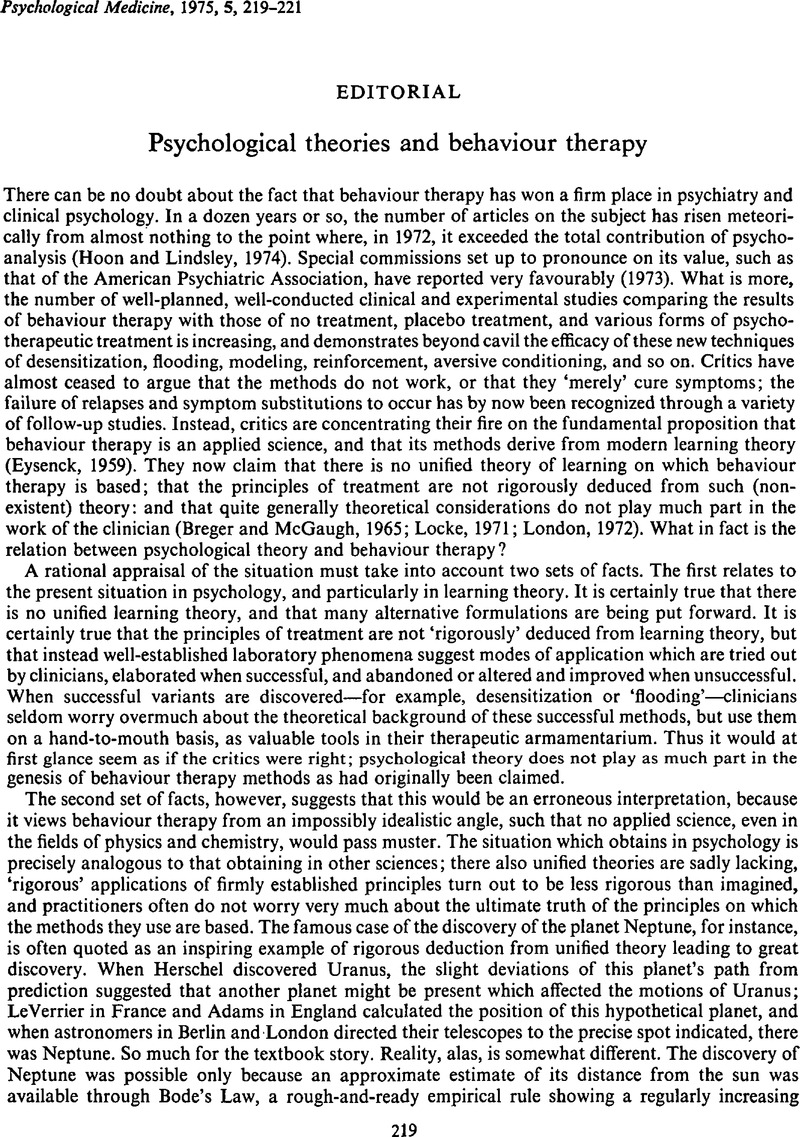Crossref Citations
This article has been cited by the following publications. This list is generated based on data provided by Crossref.
Sambrooks, Jean E.
MacCulloch, Malcolm J.
and
Waddington, John L.
1978.
Incubation of sexual attitude change between sessions of instrumental aversion therapy.
Behavior Therapy,
Vol. 9,
Issue. 3,
p.
477.
Hafner, R. Julian
1981.
Behaviour Therapy for the Neuroses: Some Conceptual and Practical Problems.
Australian & New Zealand Journal of Psychiatry,
Vol. 15,
Issue. 4,
p.
287.
Kopelman, Michael D.
1986.
Psychiatrists' education in psychology: jackdaw or sponge?.
Psychological Medicine,
Vol. 16,
Issue. 1,
p.
13.
Eysenck, Hans J.
2001.
Bibliography.
Personality and Individual Differences,
Vol. 31,
Issue. 1,
p.
45.
Reise, Steven P.
and
Waller, Niels G.
2003.
How many IRT parameters does it take to model psychopathology items?.
Psychological Methods,
Vol. 8,
Issue. 2,
p.
164.
Twenge, Jean M.
Catanese, Kathleen R.
and
Baumeister, Roy F.
2003.
Social Exclusion and the Deconstructed State: Time Perception, Meaninglessness, Lethargy, Lack of Emotion, and Self-Awareness..
Journal of Personality and Social Psychology,
Vol. 85,
Issue. 3,
p.
409.
Bono, Joyce E.
and
Judge, Timothy A.
2004.
Personality and Transformational and Transactional Leadership: A Meta-Analysis..
Journal of Applied Psychology,
Vol. 89,
Issue. 5,
p.
901.



